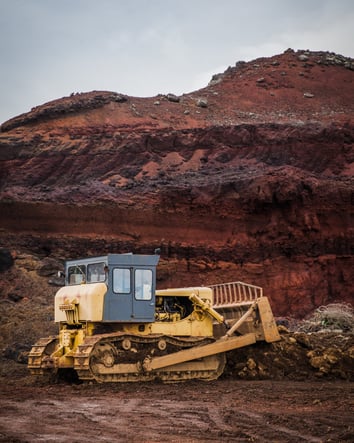
Transitions of New
Karen Connell
4/6/2023


Transitions of New
Karen Connell
“Then he who sat on the throne said, ‘Behold, I make all things new.’ And he said to me, ‘Write, for these words are true and faithful.’” (1)
“Who is this coming up from the wilderness leaning on her beloved?” (2)
“Trust in the Lord with all your heart and lean not on your own understanding; in all your ways submit to him, and he will make your paths straight.” (3)


New means New
The disciples were excited. The Messiah had come, and he was going to make all things new. Of course, that meant he would restore Israel as a powerful nation, right? Of course, it would mean that the Roman oppression would lift off their lives, correct? Of course, the Messiah would restore all things and they would be the powerful rulers of all phases of government and culture. Of course, what else could it possibly mean?
When NEW comes into our lives, it is fun and exciting when it is wrapped in shiny paper. But when NEW takes an unexpected turn and we find ourselves in shocking and terrifying places, that is when we question God and his goodness. And yet the simple birth of a child shows us clearly that NEW is marked by months of inconvenience, pain, and suffering for the mother, and then the often scary and very painful birth of the baby. But when that baby arrives, all things become new—regardless of the suffering and surprises. Regardless of the recovery the mother still has to traverse, the new territory of mothering begins. That new baby changes everything and makes it all worthwhile. Suddenly the world looks differently.
We, modern-day disciples, have the blessing of hindsight. We understand that Jesus had to die so the first-century disciples could experience freedom, triumph, and power that far exceeded the natural pain of their existence. We look back and from our vantage point, we see the resurrection and the ascension. We see the promised Holy Spirit. However, as the disciples’ experienced that ominous week prior to Jesus’ brutal death, they entered triumphantly with all of Jerusalem crying Hosanna to THEIR Rabbi. If you were one of those disciples, please imagine that you were inches away from all of your dreams coming true. Finally, Rome will be overthrown, and we will be triumphant. Finally, we will be free. And at that very moment of exhilaration, suddenly a wrecking ball demolishes their dreams, their plans, their hopes, and even their faith.
Demolition involves shaking, shattering, exploding, and demolishing.
Even though we know we are eternal creatures, it is easy to get attached to the temporary. We become fond of deep sentimental bonds. It feels as if our hearts are being ripped apart, with deep crevices left in our souls. Daily tasks now seem bewildering. It is hard to surrender what we hold dear to the wrecking ball of God’s more. When all we know disappears and the new hasn’t yet appeared, this is where the fire burns away the dross of our faith and all we have is the deeply worn paths of faith, which never change. Yet, in the devastation, even those paths seem lost.
We, like the disciples, when encountering life’s wrecking balls are shaken to our core, and when we finally come out of shock, we look around and see a pile of rubble, broken dreams, and beliefs. What did it all mean? What a mess. After a building is demolished, the grounds must be excavated.
Excavation is overwhelming. It takes time. It demands a plan. It is long hard arduous work. After seeing the debris left after demolition, it would be easy to want to give up.
Concluding it is all too much. Impossible. Just walk away. Can you imagine how the disciples must have felt? We get a clue: they walked away. They went back to fishing.
But if we do not do the work of excavation, we carry in our souls all that debris to the next relationship, experience, or location. When we see repeat negative patterns, it is usually because we avoided excavation. Regardless of how many times God intervenes in our lives, excavation is always our choice. No one magically appears and removes the rubble in our souls. It is a partnership between God, those we allow to assist us, and us, but primarily between God and us. Excavation takes courage and patience. Excavation is not done overnight, but rather one step at a time or one pile of rubble removed at a time. Rather than avoid or run, it is better to roll up our sleeves, get the help we need, and start removing the rubble from our souls. And do not get impatient because it will only lead to frustration, or a job half done.
Jesus shows up on the shoreline. He knew where to find them. They were lost and they needed to be found. The debris needed to be removed from their souls, from their hearts, from their minds. Jesus tenderly and firmly called to them in familiar tones and commands. He made himself findable. He became their most prized catch that day. You see, even in excavation treasures are found. But now, what do they do? Jesus names them, calls them, and commissions them. He recasts the original vision except now from the other side of the wrecking ball. Suddenly they can see with the idols of political and military power removed. They can see that they are fishers of men for a kingdom greater than Rome. Jesus begins the work of renovation, redesigning the interior soul and their exterior life.
Applications of faith are tried, and a theology is reborn.
Renovation involves building, moving, forming, and repurposing with materials, color, style, textures, vision, and surrender. Renovation is exciting and disconcerting. After surviving the demolition and excavation phases, we are now left with a blank slate.
Once, where something strong, powerful, and meaningful stood, there is bare land and a bare foundation. It is hard to conceive of anything other than what was, and difficult to envision something new.
We aren’t totally sure new is best. Familiar seems fine.
Usually, at this point, there is another wave of loss felt. Sentimental thoughts and memories keep us in yesterday’s space. The tug of war begins. Our wills are often divided. We cognitively realize the old is gone and no longer retrievable; however, our hearts yearn for something familiar to grasp. The emptiness seems so large, and the voices of fear and the unknown seem so loud. The architect reminds us of the plans for the new, but we can’t envision it, nor are we sure we really want it. The designer presents different colors, textures, and styles to choose but none of those options feel like us. Well, at least, they don’t feel like who we were yesterday.
We are in the land of in-between.
Just like the disciples on the beach that day. They could reach back to their boats, or they could linger with Jesus pondering the new they couldn’t comprehend.
And new doesn’t stop there. He commands them to go into Jerusalem and wait for Holy Spirit to descend upon them to endue them with power. What? Jerusalem!? Where we just came from? Where they crucified him? Where we failed him? Wait on Holy what? And there they go, one by one obeying the voice they knew to be true. Not being able to conceive it or believe it, they follow the Lamb and obey. And talk about an incredible renovation. The Holy Spirit arrives and blows the place apart with his presence, joy, power, and love. Jerusalem had never seen such a sight. Suddenly little temples were all aflame, laughing, dancing, proclaiming with boldness that Jesus was alive. The renovated temples were the most magnificent, powerful, and unusual temples the world had ever seen. And even with that, there is more…
Transformation.
Glorious transformation.
We await our King. And when we see him, we shall be like him.
1. Revelation 21:5 NKJV, biblegateway.com
2. Song of Solomon 8:5 NIV, biblegateway.com
3. Proverbs 3:5-6 NKJV, bible.com
4. 1 John 3:2 NIV, biblehub.com
